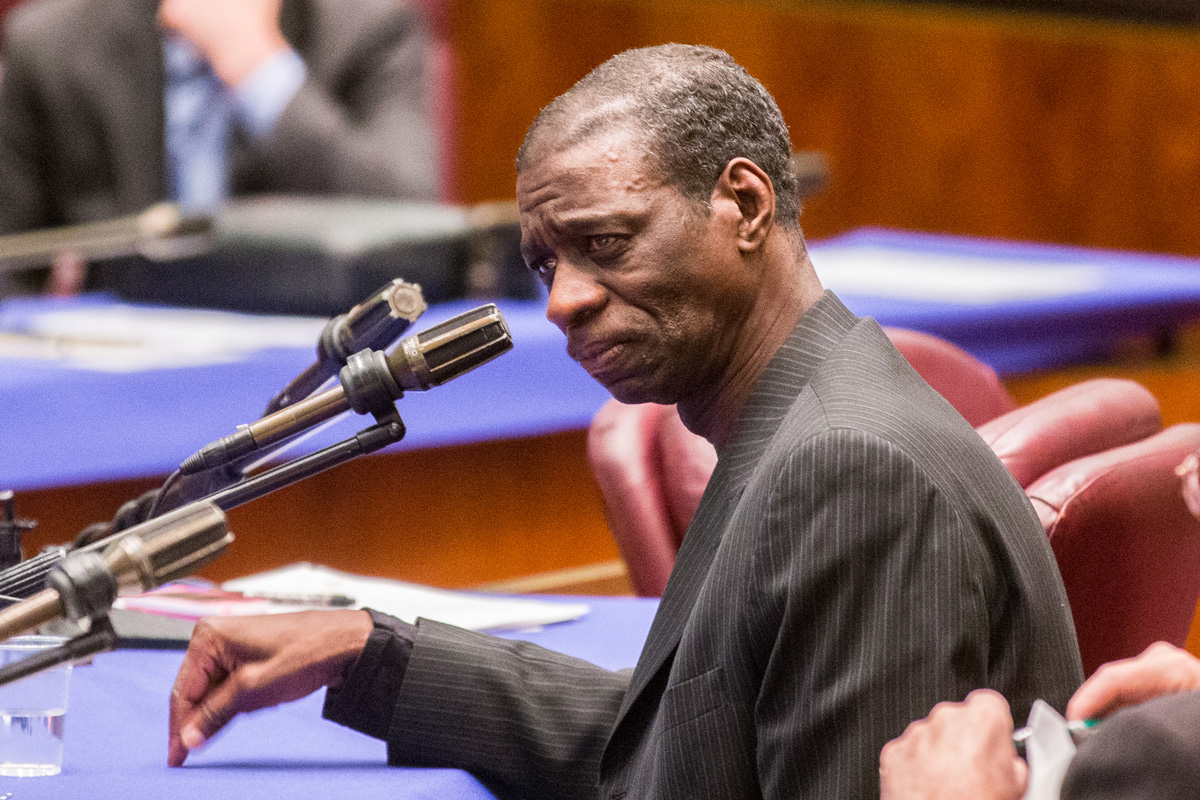Last year the writer Ta-Nehesi Coates theorized on the case for African-American reparations. This month the City of Chicago put that theory into practice, and it could be a model for reparations to come.
For Coates, the case for reparations is primarily economic. In last year’s landmark essay for the Atlantic, he chronicled U.S. history as an extended campaign of theft and banditry aimed at black people. "The vending of the black body and the sundering of the black family became an economy unto themselves, estimated to have brought in tens of millions of dollars to antebellum America," Coates wrote. He argued that America has systematically robbed black people for hundreds of years. As a result, the United States literally owes its black citizens money. That's the case for reparations.
It may seem inconsistent, then, that the single most successful reparations initiative since Coates's essay has little to do with economic harms.
Last week the Chicago City Council passed an ordinance to provide $5.5 million in reparations to victims of police commander Jon Burge. Burge and those under his command tortured as many as 120 African-American men from 1972 to 1991, eliciting false confessions through the use of electric shocks, suffocation, and murder threats. After being tortured, these innocent men spent decades in prison. Some of those convicted on confessions delivered under torture remain there to this day. The $5.5 million will provide free tuition for 50 victims and their families at city colleges, free psychological and substance abuse counseling, and other assistance.
The knee-jerk reaction to Coates' original reparations argument has been that it's a nice idea in theory but it can't really work in practice. As the Atlantic’s David Frum wrote, most Americans see reparations as "cash flowing from some Americans to others in race-conscious ways meant to redress the racial wrongs of the past," an idea that Frum (and many others) see as unworkable.
To some degree, the Chicago ordinance might be seen as supporting Frum's skepticism. Chicago is not, after all, working to recompense African-Americans for generations of economic pillage. It is instead focusing on a specific harm, committed in the recent past by agents of the state in violation of the state's own laws. Even this small gesture at restitution has only been won through a long, grueling campaign—and justice remains elusive. Jon Burge served only four years in prison, less than many of those he falsely convicted. He still retains his pension.
But the ordinance can also be seen as a hopeful blueprint for other efforts. The centuries-long campaign of brutality against African-Americans and black people in this country is, after all, made up, by necessity, of innumerable small injustices, both economic and otherwise. Coates points out some of them, such as the Tulsa, Oklahoma riot of 1921 and Aetna’s insuring of slaves. Lawsuits around these issues failed, but the Chicago ordinance was not forced by a lawsuit. There's nothing to stop Tulsa or Aetna—or Ferguson, Missouri, for that matter — from providing reparations to those they injured. It may seem hard to imagine them doing so, but it's not unworkable, nor impossible. If they wanted to, they could. The Chicago torture ordinance shows that.
The ordinance also provides a model for directing reparations to communities as well as to individuals. The city is not just providing services to the injured; it's also offering a formal apology, creating a memorial to the victims, providing or designating a community center on the South Side, and promising to include information about the Burge case and police torture in the curriculum for Chicago Public School students. Reparations, in this case, are not just about providing restitution, but about admitting wrongdoing, and making efforts to institutionalize that admission. It's also about providing resources to a community the city damaged. As Chicago activist and educator Mariame Kaba told me in an interview at Urbanfaith.com, reparations provide,"an expansive potential vision of what justice could look like when people are harmed, and that’s really important to fight for. It’s really important to put that out there as an option of what we might consider justice to look like."
The city's apology can't make up for what Chicago did to the torture victims. And, indeed, the apology won't even stop the ongoing assault on black people—a fact underlined this week when the police officer who shot in to a crowd of people and killed Rekia Boyd in 2012 was acquitted of all charges without even having to mount a defense. But it's hard to see how there can be any justice in the future without acknowledging injustices in the past, or, for that matter, in the present. "What I’m talking about [with reparations] is more than recompense for past injustices—more than a handout, a payoff, hush money, or a reluctant bribe," Ta-Nehisi Coates writes. "What I’m talking about is a national reckoning that would lead to spiritual renewal." The Chicago ordinance points the way for that national spiritual renewal to start, perhaps, with local efforts, and local steps.




